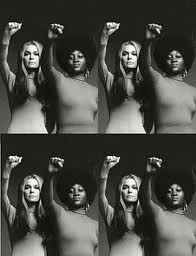 Growing dissatisfaction of women with limited options
Growing dissatisfaction of women with limited options
The Wind of Change – a 16 part feminist radio soap opera – was the brain child of Lynn Phillips who wrote the script and organized a group of women amateurs in St. Louis to take most of the parts. Located in a highly industrialized mid-western city, and contrasting the life experiences, options and dreams of different classes and races, it focuses closely on the growing dissatisfaction of women with the limited expectations and earning power of their gender while witnessing the liberating potential for sexual enjoyment offered by the new birth control pills. It also makes clear the different options for “liberation” that may be available for women of different economic circumstances.
Incisive and funny
The series is incisive in it’s analysis and critique of urban and suburban social and economic realities while also being very funny. The impact of the civil rights, Black Power, emerging women’s liberation movement and a new environmental consciousness is felt throughout. It plays on the conceits and production devices of the old radio soap operas, while suffering from the lack of experience of all involved. Produced under the exploding democratic mood of the time, that meant anyone could be an actor or producer and express themselves. And it was fun! The success and pleasure of the series has mostly to do with Phillips’ script.

Cast of Characters
The central cast of characters are suburban Will and Clarrisa Radish and their two teenage kids, Sally and Dickie. Will is moving his way up in a law firm while absent from home regularly trying to reform politics in Jefferson City, the capital of Missouri. Clarrisa has all the ailments of the conscientious, Smith grad, yet bored housewife with too much time and money on her hands. Sally is secretly taking birth control pills as she’s in a torrid affair with Bret. And Dicki is away at an Eastern College — and seldom heard from. There are a host of other characters who will confront and challenge this central cast — including Clarrisa’s old girlfriend, Serena, the highschool slut, now a college grad. And the Black maid whose son is a revolutionary. References to the political and economic landscape of the time ground the story. Everyone will be transformed during the course of the story, including the narrator.
Community radio
The voices were recorded in the “home made” radio station of KDNA — a community, listener sponsored station – in St. Louis. The facilities for recording were primitive and I was learning the ropes of mixing music with voice. Daunting. Production values? Never heard of that!


I was just looking for visuals illustrating some of my past doings. I do not recall this at all, but I feel pleased beyond words.
Don’t answer right away.. electricity is off all over Anchorage so the email server may not be back for days.. but I also use jeremy.lansman@gmail.com
Far better than your modest description leads one to expect. What a delight! Give us more!